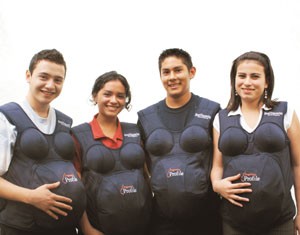
“I see this alliance as an advantage because the young people in Guatemala are very diverse and at the same time very similar. Young people react to common languages such as music, emotions, risks and fashion and they also suffer the same problems such as poverty, deficient health, a low level of education, disintegration and domestic violence,” said Gladys Chinchilla of Tan Uxil, an organization that is member of a USAID-supported alliance on reproductive health.
The alliance unites development experts, program managers, volunteers, and interested community leaders to have a greater impact together rather than as separate entities. In Guatemala, the few organizations that work in reproductive health have had major challenges, such as providing information and services to youth because of strong cultural taboos, lack of information and knowledge, and the few but divergent programs in the public, private and non-governmental sectors.
Among the advantages for members is being able to share with each other their best practices in communications, training, and service delivery to youth. Another valuable aspect, alliance members say, is the strength they derive from working together that helps influence government, private sector, and potential donors to broaden support for reproductive health programs for youth.
Several methodologies have proven successful, such as the “young replicators” approach, in which youth teach and mentor their peers. A 17-year-old male training participant said, “My mother is the youngest of 12 children and she had five of her own. I only want to have two. I think that we are starting to learn to have the children that we can raise well. That is a good thing.”







Comment
Make a general inquiry or suggest an improvement.